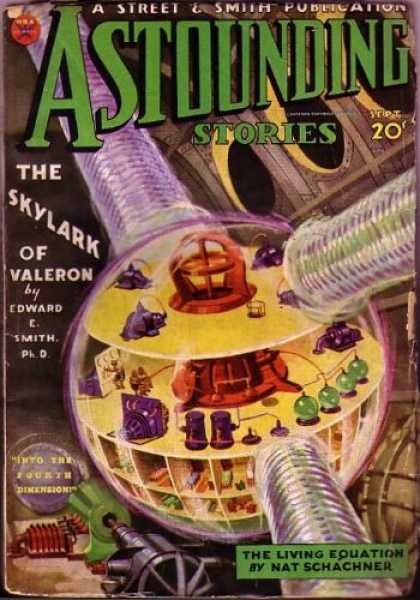|
LITR 4368 Literature of the Future |
Sample answers
for Essay 1:
|
 |
Fariha Khalil
09
July 2015
Do we Really want a Technologically Advanced Future?
As time and technology progresses, our society tends to think that our world
will continue to progress through the use of technology. Millions of dollars in
research are being spent on gadgets that are meant to improve our lives. What
would you say if you were told that our society, who is working tirelessly for
progress, will in the future want to revert back to a low-tech society? It is
hard to believe that we will one day be running away from our iPhones, iPods and
electric toothbrushes, which we use because of their convenience. As Jackie
Baker noted in her model assignment, “As a society, we must learn that with
advancement always comes regression. We cannot expect to explore the
technological world without experiencing the side effects. It is comical to
realize that we are trying to produce a perfect world full of beauty and
perfection, which will one day be our prison. Our chrome gilded cage will
envelop us; we will scream for escape.” The narratives we have read gives us a
reversal of our future in which, all of these technological advances will no
longer be satisfying to us, thus, leaving us wanting to go back to the past.
A good example of this dissatisfaction with the high-tech world of the future is
seen in
The Onion and I, in
which, living in a virtual reality offers endless opportunities and
possibilities, but they are merely pretend. The lives of the family reminded me
of a child-playing house. Perhaps they could see these things, but they were
not actually experiencing them. A computer is not a living thing, although we
sometimes feel that we could not live without them. Our connections should be
contained to real actual living beings, not an easy escape into “paradise.” The
high tech world was not enough to appease the boy’s father’s connection to the
earth and onion. Human connections and bonds cannot be forgotten, and they
cannot be forged, for they are precisely what make us human. In the father’s
heart low tech beat out high tech, because no matter how real and perfect his
life seemed in the virtual world, it wasn’t ever as real as the smell and taste
of an imperfect onion.
Similarly, in
Drapes and Folds we find Diana
and Pearl existing in a high-tech world, but doing all they can to hold on to
remnants of the past. Fabric laws have been imposed in their future world; in
fact, “The Powers saw sumptuous clothing and fabric as part of the ‘anarchic
individualism’ that had poisoned the last half of the twentieth century”.
The New Society with its clean, robotic characteristics wants to rid the
society of their humanistic qualities. Humans no longer need sexual intercourse
to reproduce and they can no longer indulge in “foreign foods”. The New Society
is trying to implement “Bracies” so that the people will all conform to one
universal shape. But Pearl tries to hang on to her fabrics and designs because
she associates them with “warmth and affection” that she remembers from her past
but no longer has in the future cyber world. Clinging to one remaining piece,
she finds a warmth and closeness with her granddaughter (a robot) that she has
not experienced in this world but has wished for.
Continuing on with the theme of dissatisfaction,
In Burning Chrome and Johnny
Mnemonic we encounter a glorification of the low-tech in a high
tech society. Automatic Jack, in Burning Chrome, goes at one point to New
York to visit, Metro Holografix, which is a black market. Since he is living in
a high tech society, you would expect that the market only sold all the new tech
savvy gadgets but this isn’t the case. Metro Holografix is cluttered with
nameless junk, old computer parts, and audio cassette players. Guns, that are
low tech, are now being sold for top. Even though there are new advanced
gadgets, there is nothing like the feel of a real object. In Johnny
Mnemonic, we also encounter low-tech gadgets such as shotguns and
dolphins of a time past. Johnny is being used to hold the memories of those
don’t want to think for themselves. Johnny becomes tired of this type of robotic
mind and wants to return back to a world where people thought for themselves.
Lastly,
Speech Sounds depicts a similar
future world in which there is great unhappiness and a wish for a return to past
conditions. A terrible illness having been unleashed, many have died and those
remaining have lost their ability to speak. Rye, a former college professor,
agonizes over the loss of her family and her communication skills, as well as
all interaction with others. The conditions of the dystopian future world have
brought on violence due to an increased frustration caused by the
illness. Rye herself “…had experienced longing for the past, hatred of the
present, growing hopelessness, purposelessness, but she had never experienced
such a powerful urge to kill another person”. Not until she rescues two
children does she feel a renewed hope and a reason to remain in this
dysfunctional world.
After reading these narratives, the idea that society will, one day, revert back
to its low-tech roots is not so farfetched.
As
Jeannene Gazaw states in her model assignment, “while
the innovations and technological advancements of the future are sure to bring a
positive change to some aspects of our lives, it seems that we should not sever
all connections with our comfortable past. In the safety of our present, we can
cautiously seek a near perfect world while retaining our individuality and
enjoying all the pleasures that this life can bring.”
